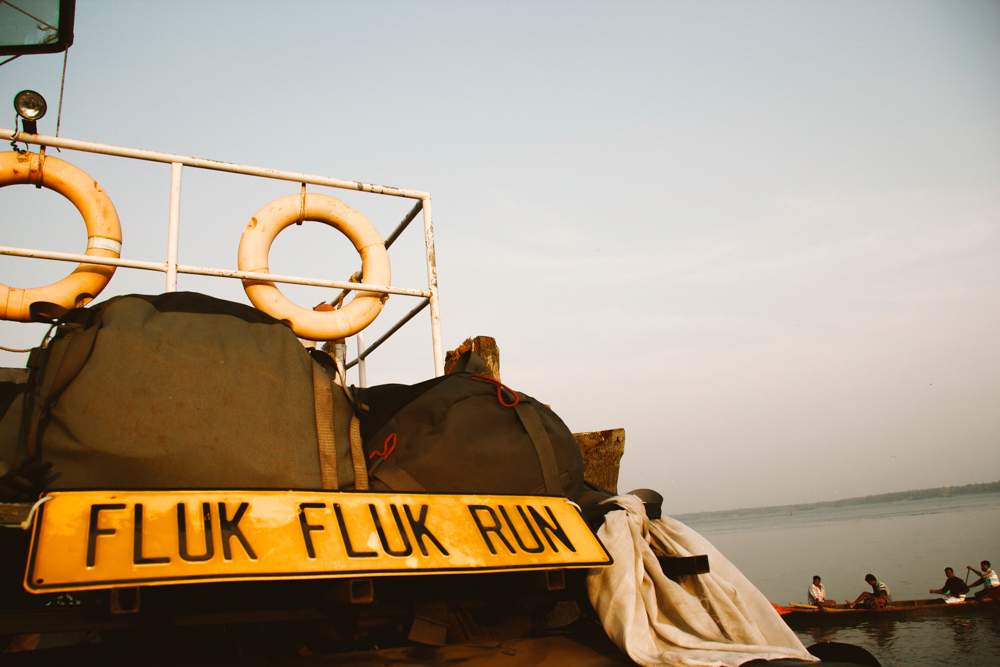What Driving An Auto Rickshaw Across India Will Teach You

We recently embarked on a 3,500 km fundraising journey through India driving an auto rickshaw, aka Tuk Tuk in Thailand, or ‘glorified lawnmower’ in some worlds, and lovingly named as Fluk Fluk, aka Flying Tuk Tuk to us. The journey took us from the deserts of Rajasthan to the coasts of Goa, until the backwaters of Kerala, across 15 towns and 5 states. People asked us why we did it, and our reply most of the time is, why not?
The unpredictability of everyday navigation and steady whirr of Fluk Fluk for hours at a time combine to create a unique environment for road meditation. Patience, spontaneity, belief in serendipity, compassion, civility, discipline, stamina and that life-saving ingredient, humor were the key components to surviving the journey.
One of the biggest lessons taught was this journey’s metaphor for life. It’s a grand adventure, but it’s not all going to be so exciting. There will be flat and even boring times, but also moments of great splendor that make it all worth it too.
Driving in this mad, gloriously chaotic land has also taught us a bundle about road wisdom. Here are few lessons we packed home with us.
9 Indian Road Rules for Life
01 | Make yourself heard. It’s better to say something than nothing.
The art of horning is exquisite. Every horn is different depending on when it’s being used and who is using it. We quickly lost our shyness and started using it when overtaking, when something was crossing our path, when oncoming traffic looked like it hadn’t seen you yet. Expressing yourself is essential for survival.
02 | Disregard the straight and (sometimes) the narrow.
Lane use is not delineated by the white lines on the road. Sometimes two lanes become four, sometimes the shoulder is used for overtaking or for going against traffic. A smaller vehicle has the advantage of being able to squeeze out of tightspots, but follow Rule #1 at the same time.
03 | There’s no such thing as a stupid question, but stick to your own advice
Even when the way forward looks straightforward, it is imperative to keep asking for directions. Cross-checking references is important, with different types of sources between maps and people. In general, taxi and truck drivers are most reliable, followed by men drinking tea at crossroads, followed by young guys on motorbikes, and last, groups of children. In the end, though, use your gut instinct to decide.
04 | The road ahead is never flat, often in the most unexpected places
Humps appear everywhere in the most unlikely of places, they never come singly and look exactly like the road, so being prepared is essential. The parts you expect to be easy or in good condition might be pot-holed to the extreme, and hills take forever to climb. It always takes longer than you think and what looks like a straight road on paper can be anything but in reality.
05 | Trust your other roadies but stand your ground, too
It may look like other vehicles are coming within a hair’s breadth of you, like the cow is not going to make it across the road in time, but the key is to trust that they know what they’re doing. Never hesitate, be constant in your own path, and make it known where you’re going. The worst is to waver in your decision.
06 | Actions speak louder than words, so look closely
Sometimes the hand signal for straight looks like go back, right is said when left is indicated, a head waggle for yes can mean no. When there is no other intersection for miles around, it’s imperative that you get this right. If you’re not sure, remember Rule #3 and keep asking.
07 | Give yourself a break before you really need it
It’s easy to run on adrenaline only and keep going, but this can cause overheating and your engine to make funny noises. Taking regular breaks ensures no breakdowns in the long run, something we avoided with pride. A general servicing every 1,000 km also helps to keep gears running smoothly. Stick to your cruising speed of 48km/h or 52km/h depending on who’s driving, and also take turns at the steering wheel to ensure constant alertness. This ensures that despite Rule #4, you’ll still make good time.
08 | Life passes you by when you’re counting kilometers, so look around
Stop whenever something catches your eye and get into the heart of it, whether it’s a passing festival, a game of cricket or a serene field shrouded in morning mist. It’s tempting to let everything pass you by, thinking that moment will come again, especially when it takes considerable effort to get the gears going again. But most times special moments are special because they do not repeat themselves. Remember the little things.
09 | Never become complacent, and stick to your own rules.
You could be cruising and have everything going well, but when you start letting your guard down and bending your own rules — like finding a place to bed down before dark – you could be stuck and lost in the woods. Literally. Follow your own rules and stick to them, and don’t slack just because things have been going well so far. We drove over someone’s foot on the last day because we had become so comfortable with proximity on the roads. Luckily, he’s fine.
Traveling daily within such uncertainty and chaos has been a refreshing change to the reliable stability of life on the red dot, but going home is a wonderful feeling, too. Now all we have yet to do is plan our next road trip – Namibia to Botswana in a camper van.
LEARN + CONNECT
Learn more about Matter Prints
Connect via Facebook, Twitter and Instagram
FROM THE EDITOR
At Conscious, we are inspired by remarkable people and organizations and so we set out to tell stories that highlight global initiatives, innovation, community development and social impact. You can read more stories like this when you subscribe.


